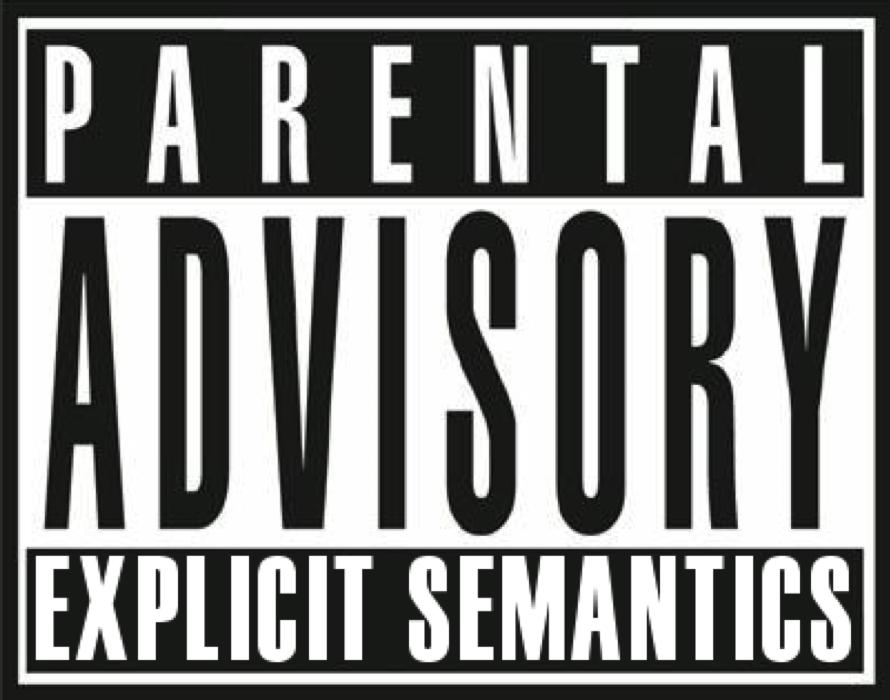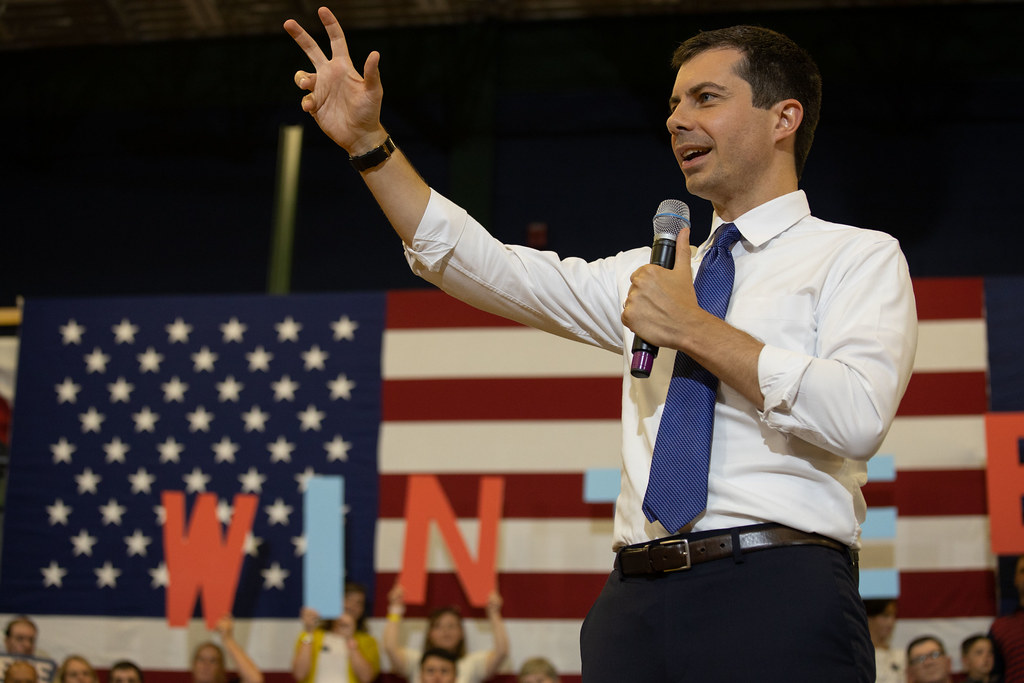Almost thirty years ago to this day, Tipper Gore, wife of then-senator Al Gore, met with three other wives of prominent politicians to discuss a very serious issue: children were in mortal danger from the insidious threat of explicit lyrics. After hearing her daughter listening to Prince’s “Darling Nikki,” which contains references to sex and masturbation, Gore decided that the time had come to put the hammer down on the music industry. Her friends agreed, and together they founded the Parents Music Resource Center (PMRC), beginning an infamous crusade they claimed was not against music with explicit lyrics, but rather in favor of increased consumer information and the safety of our children.[1] After a number of widely-publicized congressional hearings in which the PMRC pushed for lyrics to be printed on album covers and for the creation of a new ratings board similar to that of the Motion Picture Association of America (MPAA), an agreement was reached. Record labels would now be encouraged, but not required, to put warning stickers on albums with explicit content. The idea behind this was that labels would be concerned enough about negative reaction that they would affix the stickers to any albums that deserved them, but would still have discretion to view explicit lyrics in the greater context of the album.[2]
Years later, when Eminem rose to prominence and really started getting suburban white kids interested in rap, the controversy over lyrics intensified. Make no mistake, this was his goal. Slim Shady was created to generate buzz and challenge the rules of what could and couldn’t be said in popular culture. He is his own proof of this; in his breakout single “My Name Is,” he raps, “I don’t give a fuck/God sent me to piss the world off.”[3] As time went on, Em began to see himself as more persecuted than other rappers because of his skin color and popularity. He embraced his role as every white parent’s worst nightmare, taunting them and their ineffectual efforts to stop him in songs like “White America.”[4][5] His albums became impossible to avoid as they found their way into “safe” white homes across the nation.
Eminem, problematic as he is, leads us to an interesting question: Why are we so terrified of our children being exposed to profanity? Sexual and violent lyrics are understandable, as they could be disturbing to younger listeners. But what’s the big deal over swear words? Stepping outside of music for a second, consider The King’s Speech, a movie so bland and inoffensive, it won the Best Picture Oscar. The King’s Speech received an R rating from the MPAA because of a scene where the king overcomes a problem with his speech by yelling “shit” and “fuck” numerous times.[6][7] An extremely family-friendly, inspirational film was restricted to audience members over 17 because some words with no malicious intent were used. If this article were a movie, it would be rated R as well because the word “fuck” is used five times. Why? Perhaps it’s a religious thing; in my Catholic elementary school, I was taught that swearing was a grave sin. Perhaps it’s just another way for parents to control their kids. Or perhaps we just like swearing and don’t want children to take away the impact those words can have.
Whatever the reason, there’s no doubt that this fear of swear words diminishes art. Switching over to television, let’s take a look at Breaking Bad. Late in the series’ run, a major character utters some of his last words to his eventual killer: “My name is *SPOILER*, and you can go fuck yourself.” It’s a powerful, cathartic moment that’s fully in tune with who the character is. And yet on TV, it was censored.[8] Keep in mind, this is Breaking Bad. It’s a show that revolves around meth production where at different points blood and guts rain from the ceiling, a man’s throat is slit and then held open while he bleeds out, and children both kill and get killed.[9] And yet the word “fuck” just needed to be censored, damaging the quality and impact of the scene in which it’s used.
Our obsession with censoring swear words not only hurts art, it can lead parents to purchase material for their children that they might find objectionable if they did more research. Let’s turn back to music for this example. Ed Sheeran decided to censor himself on his latest album X, reportedly after a taxi driver asked him to for his young daughter.[10] The album still contains references to sex, drinking, and drugs, but because he doesn’t swear, X avoids the hallowed Parental Advisory sticker, meaning more parents bought the album for their kids despite its potentially objectionable content.[11] The same goes for any “clean” version of albums sold at stores like Walmart or online that simply censor swear words. The sticker fails to keep kids from hearing “bad music” because it actually encourages parents not to truly investigate what their kids are listening to.
And therein lies the biggest problem with any ratings system. They’re meant to help families decide what their children should and shouldn’t watch and listen to, but each family has different values and different things they’re okay with their children seeing and hearing. Ratings boards try to establish an objective evaluation of something that is ultimately subjective. And in the Information Age, detailed descriptions of what exactly parents might find objectionable in films or albums are readily available on the Internet. The MPAA does this to some extent, but does so with very vague terms like “violence, drug use, some language.” Perhaps instead it could provide more detailed forms of these descriptions for parents and abolish the arbitrary ratings system entirely. True, parents might still read them and decide that a few swear words mean their children shouldn’t see a movie, but it would still be a better system than the one that gave The King’s Speech, of all things, an R. But if there were ever a push for abolishing the current systems, you can bet that censorship groups like the PMRC would push back out of stubbornness.
In the end, perhaps the most telling sign of censorship groups being out of touch comes from the longing they had for the clean days of old. “Much has changed since Elvis’ seemingly innocent times,” Senator Paula Hawkins mused during her testimony in favor of the PMRC. She said this even with the acknowledgement that Elvis himself caused a heap of controversy when he suggestively swung his hips on The Ed Sullivan Show.[12][13] But that’s the whole point. Obviously much had changed since then. And just as swinging hips were not as scandalous in 1985 as they were in 1956, just as women wearing pants were not as scandalous in 1956 as they were in 1900, maybe it’s time we stop seeing things that were censored in 1985 as needing to be censored today. Maybe it’s time we stop keeping our kids from experiencing art because of a few swear words. Maybe it’s time to look at art holistically and weigh its merits and detriments instead of universally condemning it. Maybe it’s time we learn to stop worrying and love the f-bomb.
References:
[1] Schonfeld, Zach. “Parental Advisory Forever: An Oral History of the PMRC’s War on Dirty Lyrics.” Newsweek. September 19, 2015. Accessed September 21, 2015.
[2] Cole, Tom. “You Ask, We Answer: ‘Parental Advisory’ Labels — The Criteria And The History.” NPR. October 29, 2010. Accessed September 21, 2015.
[3] Eminem, “My Name Is,” in The Slim Shady LP, Aftermath Entertainment, 1999, MP3
[4] Eminem, “White America,” in The Eminem Show, Aftermath Entertainment, 2002, MP3
[5] Ex. Lyrics: “See the problem is, I speak to suburban kids/Who otherwise would’ve never knew these words exist. . ./And they connected with me too because I looked like them/That’s why they put my lyrics up under this microscope”
[6] The King’s Speech. Directed by Tom Hooper. The Weinstein Company, 2010. Film.
[7] Ellwood, Gregory. “Oscar Watch: ‘The King’s Speech’ Gets an R-rating for Language.” HitFix. November 2, 2010. Accessed September 21, 2015.
[8] Walley-Beckett, Moira, writer. “Ozymandias.” In Breaking Bad. AMC. September 15, 2013.
[9] Gilligan, Vince, dir. Breaking Bad.
[10] “Ed Sheeran Reveals Taxi Driver Convinced Him to Clean Up His Act.” ABC News. June 16, 2014. Accessed September 21, 2015.
[11] Ed Sheeran, X, Atlantic Records, MP3.
[12] Record Labeling: Hearing before the Committee on Commerce, Science, and Transportation. United States Senate, Ninety-ninth Congress, First Session on Contents of Music and the Lyrics of Records (September 19, 1985). Washington, DC: U.S. Government Printing Office.
[13] Gibson, Christine. “Elvis Presley : First Appearance : The Ed Sullivan Show : September 9, 1956.” Elvis Australia News. Accessed September 21, 2015.



